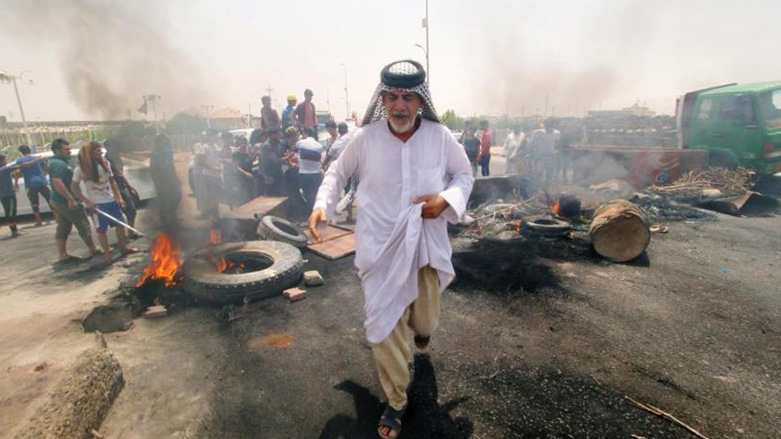WHO says earlier poisoning outbreak in Basra not result of cholera

ERBIL (Kurdistan 24) – The World Health Organization (WHO) on Thursday said that the outbreak of illnesses contracted from polluted drinking water in Basra in August was not the result of cholera.
There were earlier fears of a cholera outbreak resulting from poor sanitary conditions in Basra after nearly thirty thousand people were hospitalized after drinking contaminated water during the summer amidst weeks of protests over public services.
“On August 12, 2018, an outbreak of gastrointestinal illnesses was detected in Basra, which is believed to have resulted from widespread water supply problems,” the WHO said.
“Various gastrointestinal symptoms, like abdominal pain, cramps, vomiting, and nausea, gas/bloating, diarrhea, and fever, were reported,” the organization continued.
According to an investigation by the Ministry of Health (MOH), the Directorate of Health (DOH) in Basra, and the World Health Organization (WHO), there was no cholera found.
“While several microorganisms that are often associated with waterborne and foodborne diseases were found, it is important to note that cholera has not been detected,” the WHO explained.
“Similarly, additional stool and water samples were tested at a WHO Collaborating Center, and cholera was not found. Thus, the event in Basra was not caused by Vibrio cholera.”
The number of cases increased over the first three weeks of the outbreak, peaking at the end of August 2018, and after that declined significantly to slightly higher than normal levels by at mid-October 2018.
This decline is a result of immediate public health interventions put in place by Basra Directorate of Health with the support of the MOH, the WHO, and other partners.
As of October 15, 2018, the MOH reported over 104,599 cumulative cases of gastrointestinal illnesses. Of these, 10,842 offered stool for investigation.
“Despite the efforts to contain this outbreak, there remains a concern that the health of the people in Basra will continue to be affected unless the water situation improves drastically and quickly,” the WHO concluded.
In October, EU Ambassador to Iraq Ramon Blecua suffered a bout of food poisoning after drinking contaminated water during a visit to Iraq’s southern province of Basra.
“UNICEF doctor diagnosed the cause as water pollution. I did not intend to take my solidarity with the people of Basra that far, but certainly now share how you feel,” Blecua stated on his official Twitter account.
Since early July, Iraq’s Shia-majority southern and central provinces - especially people in Basra - have staged protests which eventually spread to other Iraqi cities, including the capital of Baghdad.
Demonstrators demanded better public services, clean water, regular electricity supply, employment, and an end to widespread corruption in Iraqi government institutions.
However, in September, calm returned to Basra after weeks of protests. Nevertheless, the quality of water has not improved.
The United States Agency for International Development (USAID) in September has contributed $750,000 to UNICEF to help vulnerable Iraqis in Basra get access to clean water.
The US has said they have done more than Iran to help the people of Basra.
“Iran is causing severe water shortages, water contamination and power outages in Iraq by diverting water away and cutting off power exports. The U.S., meanwhile, has helped fund safe water delivery to 750,000 people in Basra,” the US embassy in Baghdad said on October 24.
Editing by Nadia Riva
